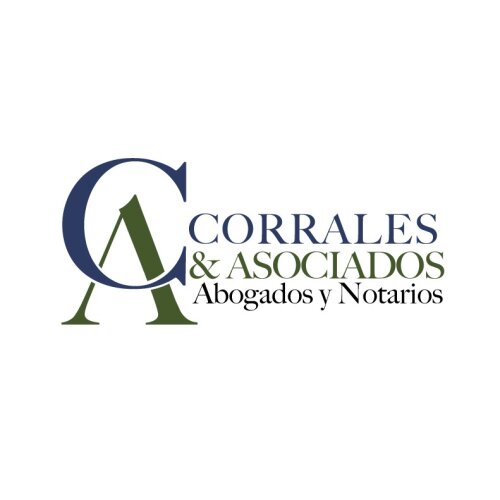Best Foreclosure Lawyers in Nicaragua
Share your needs with us, get contacted by law firms.
Free. Takes 2 min.
Free Guide to Hiring a Real Estate Lawyer
Or refine your search by selecting a city:
List of the best lawyers in Nicaragua
About Foreclosure Law in Nicaragua
Foreclosure in Nicaragua involves a legal process where a lender seeks to recover the balance of a loan from a borrower who has stopped making payments, ultimately through the forced sale of the asset used as collateral for the loan, typically real estate. Due to various economic factors and the complexity of property rights, foreclosure proceedings can be intricate, requiring careful navigation of local laws and regulations. It is crucial for both lenders and borrowers to understand their rights and obligations to minimize financial distress and legal complications.
Why You May Need a Lawyer
Legal assistance becomes invaluable in several foreclosure-related situations in Nicaragua. If you are facing the possibility of losing your home, a lawyer can help explore options such as restructuring your loan, negotiating with lenders, or filing for bankruptcy if necessary. For purchasers interested in acquiring a foreclosed property, legal counsel ensures all proceedings are conducted appropriately and rights to property are secured. Additionally, lenders may require legal advice to initiate foreclosure proceedings to guarantee adherence to local laws and ensure efficient recovery of the owed funds.
Local Laws Overview
Nicaraguan foreclosure law is primarily governed by the Civil Code and specific property legislation. Key aspects include the requirement of a judicial process to enforce a mortgage, the rights of redemption which allow borrowers to repay the entire debt to regain ownership, and conforming with procedural standards to protect both lender and borrower rights. The process is generally slow and requires compliance with several bureaucratic steps, making legal guidance essential for navigating these complexities.
Frequently Asked Questions
What is foreclosure in Nicaragua?
Foreclosure is the legal process where a lender seeks to recover the unpaid balance of a loan by enforcing the sale of the property's collateral.
How long does the foreclosure process take in Nicaragua?
The process can be protracted, often taking several months to years due to required judicial proceedings and potential appeals.
Can I stop a foreclosure once it starts?
Yes, you may stop a foreclosure by negotiating with your lender, refinancing the loan, or paying off the entire loan, a process known as redemption.
Is legal representation mandatory in foreclosure processes?
While not mandatory, it is highly recommended due to the complex nature of the proceedings and the need to navigate legal intricacies.
What rights do borrowers have during foreclosure in Nicaragua?
Borrowers have rights of redemption, can challenge improper procedures, and may seek judicial intervention to review the process.
What should I do if I want to buy a foreclosed property?
Secure legal guidance to conduct thorough due diligence and ensure property rights are clear and all transactions are lawfully conducted.
How is the sale of foreclosed property conducted?
The sale is typically through public auction, with certain legal provisions governing the minimum bid price and competitive bidding procedures.
What happens to outstanding debt if the foreclosure sale doesn’t cover it?
Lenders may pursue a deficiency judgment against the borrower for the remaining balance after the foreclosure sale.
Can foreclosure affect my credit rating in Nicaragua?
While Nicaragua doesn’t have a formal credit rating system like in other countries, foreclosure can limit your ability to access future credit.
Are there alternatives to foreclosure?
Yes, alternatives include loan modification, short sale agreements, or voluntarily surrendering the property to avoid formal proceedings.
Additional Resources
Individuals seeking more information or assistance can reach out to the Nicaraguan Supreme Court’s website for legal resources, consult with the public conservatorship offices for property records, or contact local legal aid organizations for support and advice on foreclosure matters.
Next Steps
If you face a potential foreclosure or need assistance, consult a legal expert specializing in Nicaraguan property law. Gather all relevant documents, including loan agreements and payment records, and prepare a list of questions to discuss. Taking proactive steps early can potentially alleviate stress and lead to a more favorable outcome.
Lawzana helps you find the best lawyers and law firms in Nicaragua through a curated and pre-screened list of qualified legal professionals. Our platform offers rankings and detailed profiles of attorneys and law firms, allowing you to compare based on practice areas, including Foreclosure, experience, and client feedback.
Each profile includes a description of the firm's areas of practice, client reviews, team members and partners, year of establishment, spoken languages, office locations, contact information, social media presence, and any published articles or resources. Most firms on our platform speak English and are experienced in both local and international legal matters.
Get a quote from top-rated law firms in Nicaragua — quickly, securely, and without unnecessary hassle.
Disclaimer:
The information provided on this page is for general informational purposes only and does not constitute legal advice. While we strive to ensure the accuracy and relevance of the content, legal information may change over time, and interpretations of the law can vary. You should always consult with a qualified legal professional for advice specific to your situation.
We disclaim all liability for actions taken or not taken based on the content of this page. If you believe any information is incorrect or outdated, please contact us, and we will review and update it where appropriate.
Browse foreclosure law firms by city in Nicaragua
Refine your search by selecting a city.









